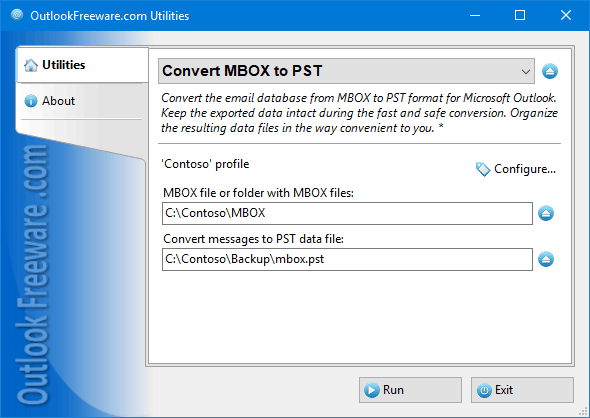The utility converts the email database files from the MBOX format to PST for Outlook. You can get one or more PST files from MBOX files in different folders. The contents of each MBOX file can be saved in a separate folder in the PST file. In the process of conversion, you can immediately split the resulting PST files by size or year. The MBOX format is used by some email programs to store email messages, such as Mozilla Thunderbird. MBOX files contain all mailbox messages or each folder separately. To make these messages available to Outlook or Exchange Server, you must import them into Outlook or convert to Outlook PST data files. After the message base is converted from MBOX to PST, you can open it in Outlook. In addition, MBOX files are used by some email services to migrate message databases, such as Google Takeout. When you convert such MBOX files, the utility recognizes email labels and can create the Gmail folder structure in a PST file. You can also use Gmail labels to assign Outlook categories to messages. Messages in a resulting PST file will look as if you received them directly to Outlook from the mail server. All HTML formatting, attachments, and headers will be saved in the original form. When converting, source MBOX files can be moved to another folder. In this case, when you rerun the utility from the same location, target PST files will not contain duplicate messages. Converting email messages from MBOX to PST is used when migrating or preparing to migrate an old mail database from MBOX format to Outlook and Exchange Server mailboxes and public folders. Pre-conversion enables you to estimate the size of the new database and transfer data in parts. To convert MBOX to PST on a schedule, or as part of batch files and scripts, use the command line provided by the product. By using the command line, you can create flexible mail transfer and migration scenarios for any number of users in any organization.

